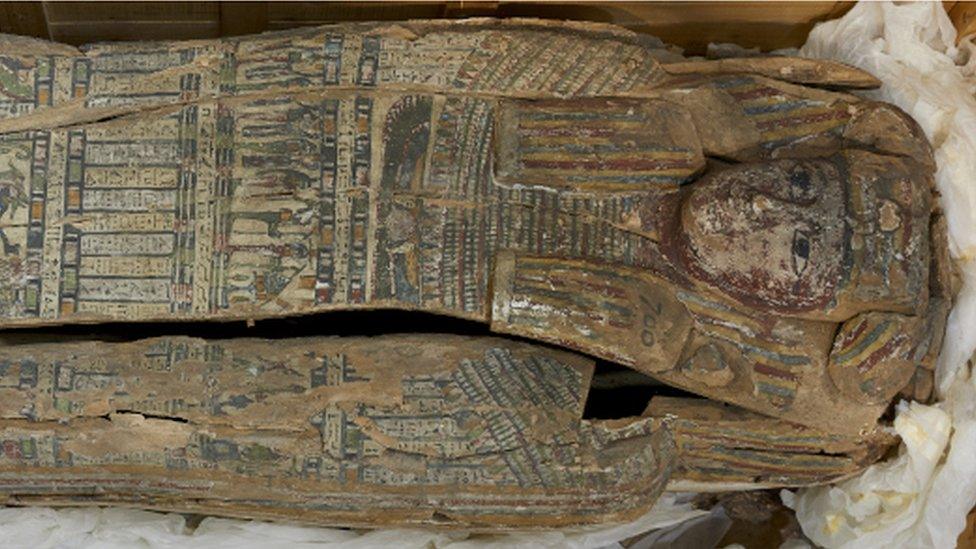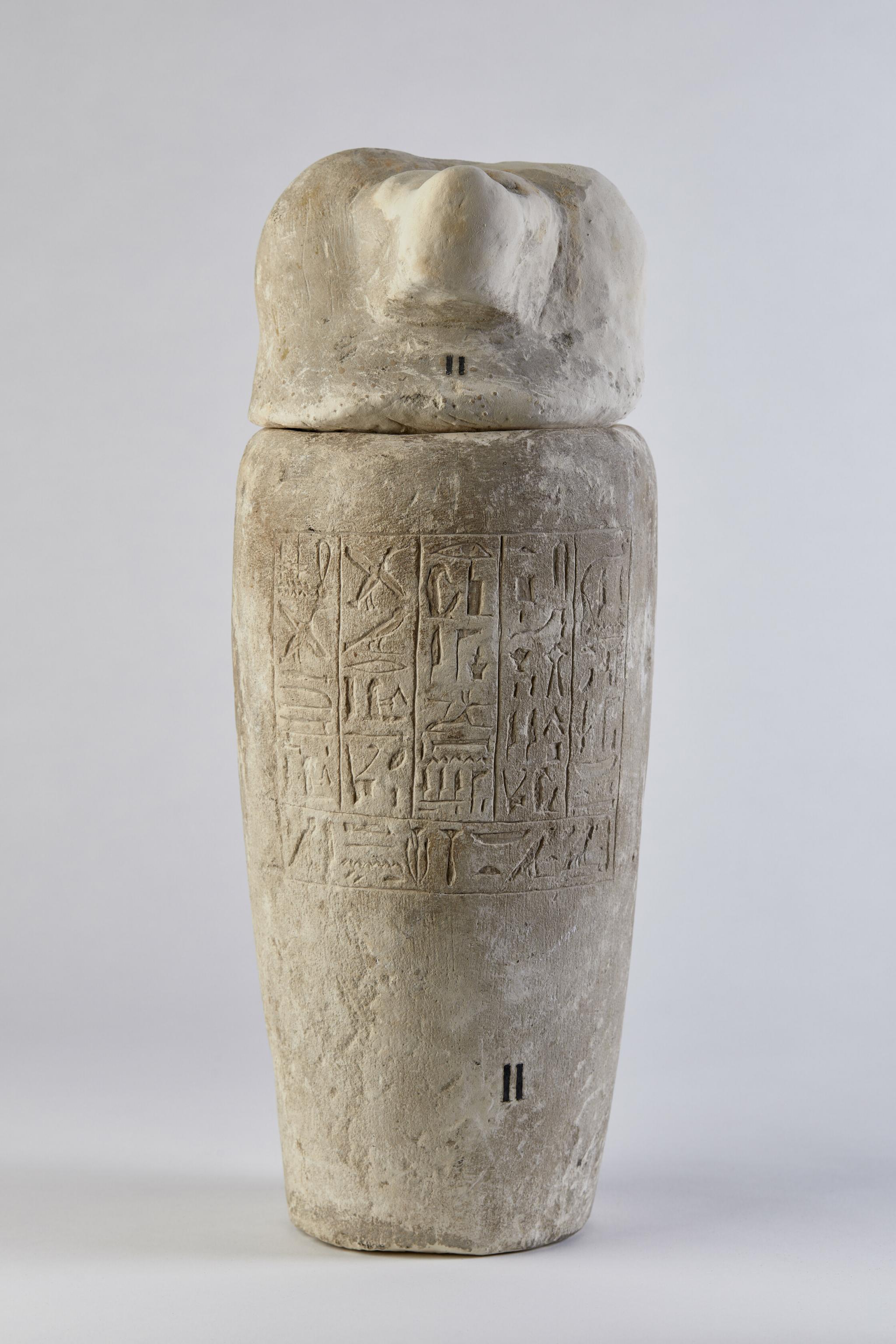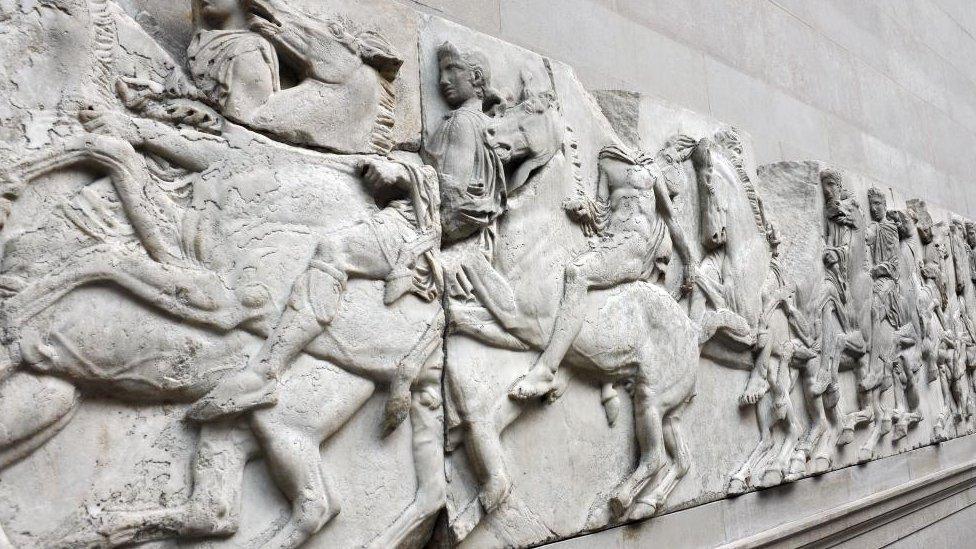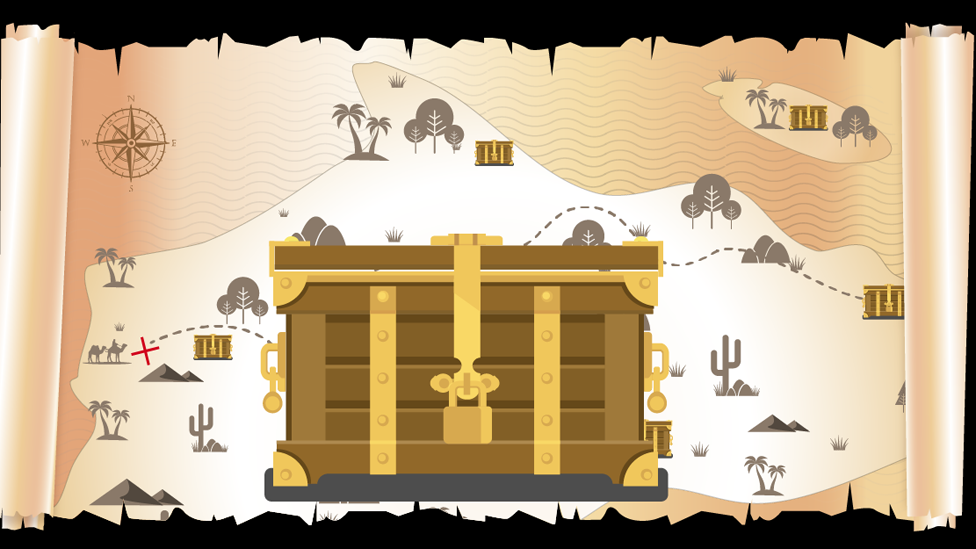The Mummy: Irish university to return human remains to Egypt
- Published

The 2,600-year-old sarcophagus is thought to be made of sycamore applied with plaster and decorated with pigment
An Irish university will be returning the mummified remains of a man, a sarcophagus and other artefacts to Egypt.
The move by University College Cork (UCC) follows negotiations involving the Irish and Egyptian governments.
It is believed the university obtained the remains and sarcophagus through a donation from "African Missioners".
The Egyptian ambassador said the repatriation was of "utmost importance".
The university said the mummy was obtained on the mistaken assumption that the remains were that of a queen because the sarcophagus was excavated from the Valley of the Queens.
However, the remains are that of an adult male, estimated to be between 45 and 50 years old.
The sarcophagus is wooden, believed to be sycamore, applied with plaster and decorated with pigment and has been dated at approximately 625 to 600 BCE.
An inscription indicates that it belonged to a man named Hor and decorations on the lid indicate he was presented by Thoth, Egyptian God of writing, wisdom and magic.
Within the collection being repatriated are four Canopic jars which were purchased by UCC J.E. and E.K. Preston, Antiquaries and Dealers in Works of Art in Harrogate, Yorkshire sometime between 1911 and 1912.
The jars are believed to be the oldest of all the items being returned to Egypt with an estimated date of between 945-700BCE.

The Canopic jars are believed to be the oldest of all the objects being returned
UCC President Prof John O'Halloran said: "UCC takes seriously the care of its heritage assets and is pleased to be in a position to present these objects to the Egyptian State."
Negotiations to prepare for the move have been ongoing between the Egyptian embassy in Dublin, the Department of Foreign Affairs, and the National Museum of Ireland.
Mohamed Sarwat Selim, Egyptian Ambassador to Ireland, said returning the mummified remains and artefacts to "our homeland" was of the "utmost importance".
The transfer of the collection is set to take place at some point in 2023.
Irish Foreign Affairs Minister Simon Coveney said he was "delighted" to help facilitate the transfer.
In recent years there have been increased efforts to return historic artefacts taken in the European colonial era to their place of origin.
Reports suggest the British Museum is at "an advanced stage" in negotiations to return the Parthenon Sculptures - also known in the UK as the Elgin Marbles - to Greece.
Related topics
- Published3 December 2022

- Published23 November 2018
